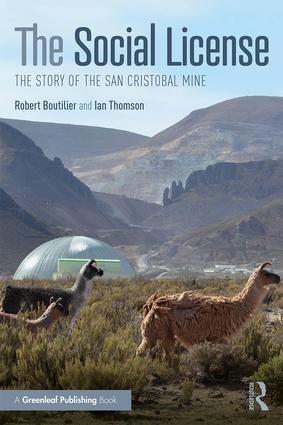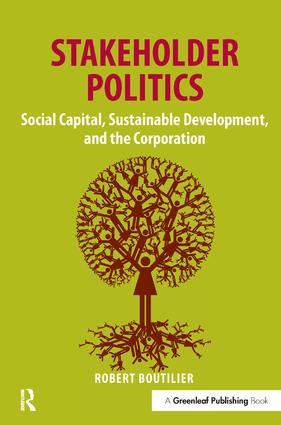Books
Latest Books
The Social License: The Story of the San Cristobal Mine
This unique book combines a colourful history of Bolivian politics with some of the most advanced quantitative techniques yet developed for socio-political risk analysis. This is the story of how a foreign-owned private sector mining company (Minera San Cristobal – MSC) earned, lost, and regained its social licence to operate.
Robert Boutilier and Ian Thomson, leading experts in stakeholder management theory and practice, transform the concept of the SLO from a metaphor to a management tool. The book traces the development of new concepts and measures in the field of stakeholder engagement while following the narrative of a community struggling with a fundamental change in its identity from a declining, malnourished llama-herding village to one of the richest towns in Bolivia.
This remarkable story will inspire practitioners in the field of stakeholder management; it will provide an invaluable roadmap for professionals working on land re-use projects in the energy, mining, and conservation sectors; it will make stakeholder relations concepts and techniques accessible to students through an engaging and in-depth case study; and it will open your eyes to one of the most fascinating accounts of how two different cultures collided and then came together to address different but aligned goals.
A Stakeholder Approach to Issues Management
This outstanding book offers you a fact-based strategy development process for managing issues and controversies.
If you’re a practitioner, it details how to ground your strategic advice on empirical research that reveals the sociopolitical dynamics of the issue. It is the first book to approach issues management from a blended application of advances in stakeholder theory and social network analysis. You’ll learn how to track the sociopolitical environment in order to
(a) avoid risks and crises,
(b) obtain essential environmental scanning information for strategy development or adjustment, and
(c) secure the organization’s reputation and access to vital resources.
The techniques described in this book have proven effective in issues management projects around the world. They work equally well whether the stakeholders are illiterate subsistence villagers or Internet savvy global activists.
Stakeholder Politics
While managers rely on facts and rational analysis, their self-appointed critics have mastered the arts of political discourse, issue framing and media manipulation. At the same time, as corporations extend their global reach, their third-world stakeholder communities are beset with a variety of poverty-maintaining and sustainability-thwarting conditions. In many parts of the world, communities suffer from entrenched divisions, exclusion from power, unpredictable violence and economic dependency. In order to both reduce reputational risk and to contribute to sustainable development, companies need the equivalent of roadmaps of the socio-political terrain in their stakeholder networks.
This book moves on to next challenge of giving companies what they need now: namely, “how to” guides addressing the twin problems of firstly maintaining political legitimacy (talking the talk), and, secondly, promoting sustainable development (walking the walk). They need to learn how to both play stakeholder politics and collaborate with stakeholders towards sustainability goals.
Out of Print Books
Svendsen, A.C., Boutilier, R.G. and Wheeler, D. 2003. Stakeholder Relationships, Social Capital and Business Value Creation. Toronto, Ontario: Canadian Institute of Chartered Accountants.
Svendsen, A.C., Boutilier, R.G., Abbott, R.M. and Wheeler, D. 2001. Measuring the Business Value of Stakeholder Relationships: Part One. Toronto, Ontario, Canada: Canadian Institute of Chartered Accountants.
Boutilier, R.G. 1993. Targeting Families: Marketing To and Through the New Family, Ithaca, NY: American Demographics Books.


